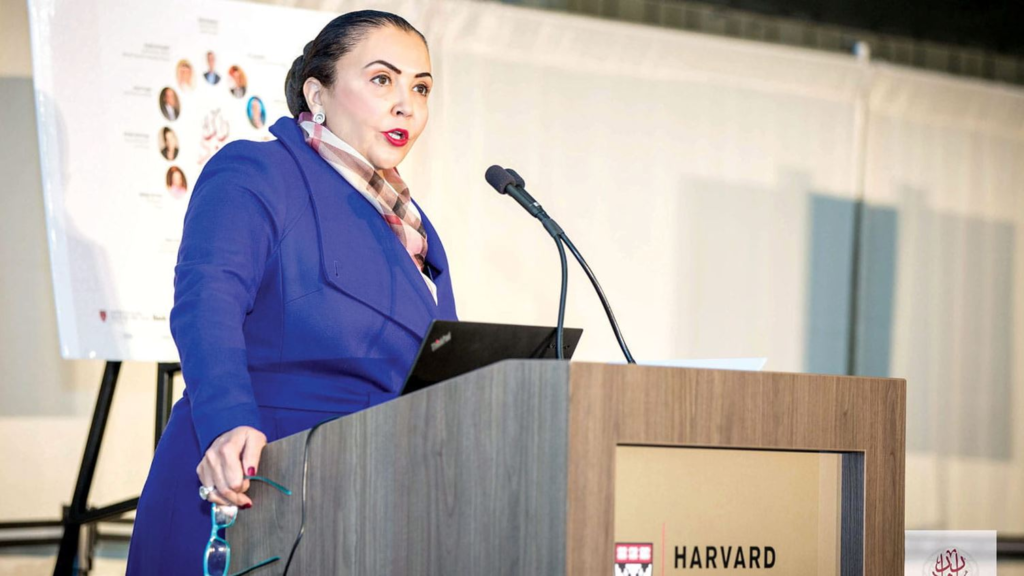Chief engineer delivers keynote at Harvard Business School’s Arab Conference

Nabilah M. Al-Tunisi, Saudi Aramco’s chief engineer, set her focus on the future, sharing news of the company’s direction at the Arab Conference at Harvard 2017. Her keynote address, “Preparing for Tomorrow,” attracted prominent politicians, business professionals, and civic leaders, as well as students from colleges across the region.
The event is the largest Arab conference in the United States, held on the campus of the oldest university in the United States.
Preparing for tomorrow, succeeding today
“Energy is central to all that we do,” Al-Tunisi said, adding that Saudi Aramco is preparing for tomorrow in ways that are both significant and progressive, and at the same time, the many recent achievements in Saudi Arabia are contributing to an exciting future.
Looking at data from independent global sources, including the International Energy Agency, she pointed to the current and future demand growth for oil that, coupled with population growth, compels Saudi Aramco to continue a robust oil and gas investment strategy. She also considered the challenge of electricity access in which, without the right energy resources, hundreds of millions of people may be without access by 2030.
If, as projected, natural gas becomes the primary source of energy for electricity in the future, it’s clear that “a broad mix of energy sources are going to be needed.” At the same time, energy efficiency must figure prominently in any strategy and will substantially impact consumers — making a good comprehensive management program a must, she said.
Safety and reliability
In her area of specialty as chief engineer, Al-Tunisi talked about the corporate engineering standards that contribute to making Saudi Aramco’s operations and facilities among the safest and most reliable. Quality management, corporate innovation, and knowledge management, as well as a board of engineers, are key to creating a culture of engineering excellence, said Al-Tunisi. She noted the company takes a long-term strategic approach and is committed to meeting future energy demand by investing in new technologies and collaborations to develop innovative technologies and practices.
She then turned her attention to Saudi Arabia, highlighting the special economic zones, including King Abdullah Financial City in Riyadh and its prestigious development, which serves as an example of the Kingdom’s growth and progress. She also spoke of King Abdullah University of Science and Technology and its platform for promoting innovative startups in Saudi Arabia — which is seeing significant success in the five years since its inception.
She highlighted Saudi Aramco’s investments in startups and the encouragement and mentorship the company offers to entrepreneurs with great ideas.
A question-and-answer session drew questions about technology and creating innovative cultures, as well as Al-Tunisi’s experience working for Saudi Aramco. “It’s very exciting,” she replied. “At Saudi Aramco, what prevails, what makes you successful, is substance, experience, and hard work.”





 Email: info@cyber-gear.com
Email: info@cyber-gear.com